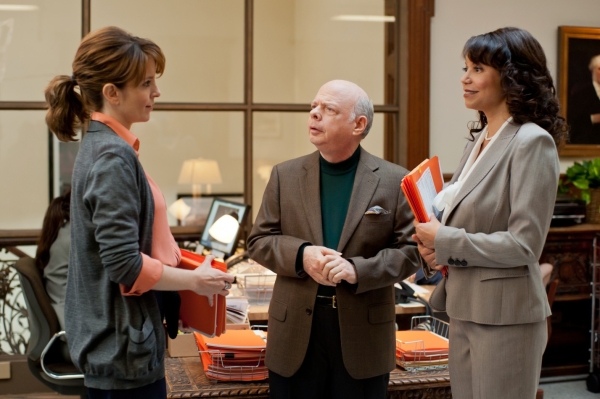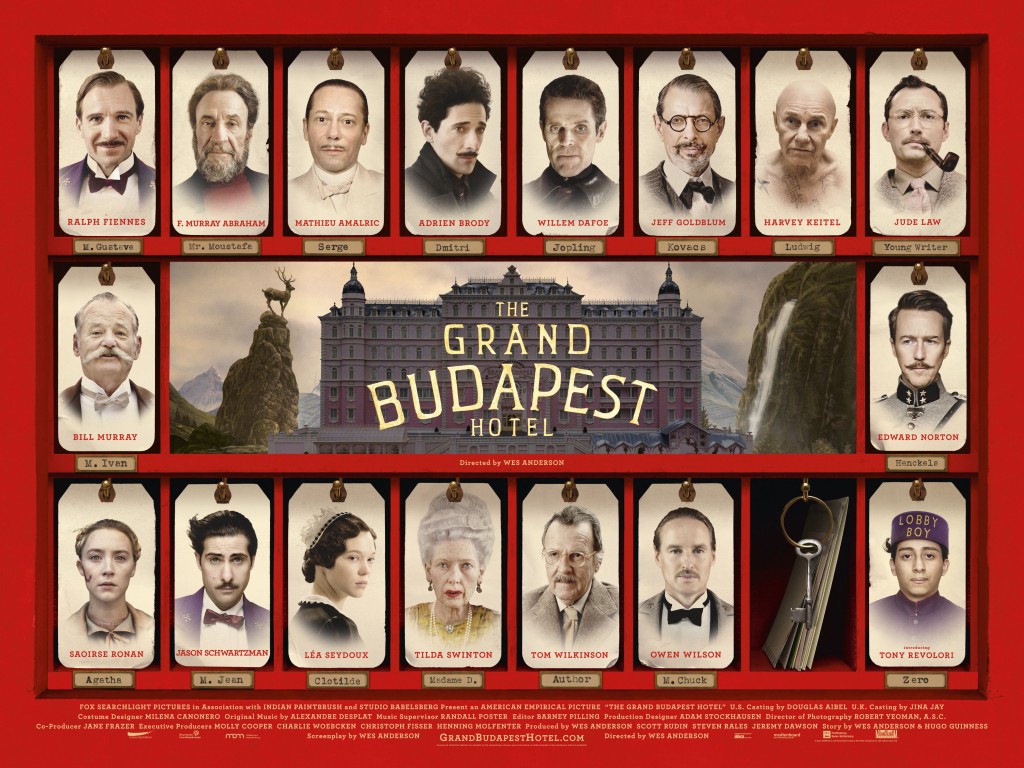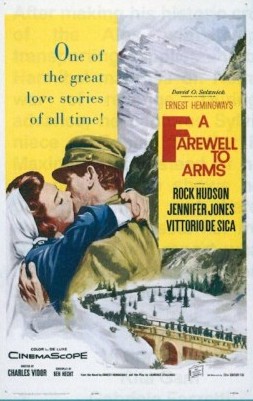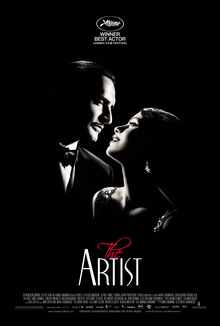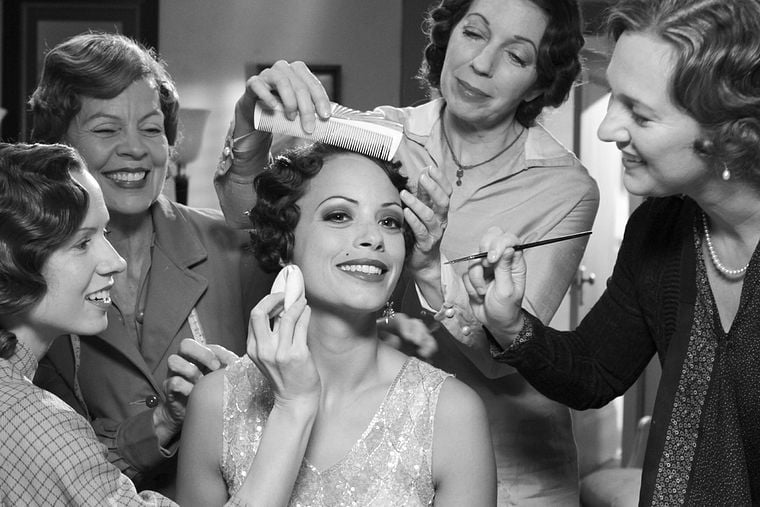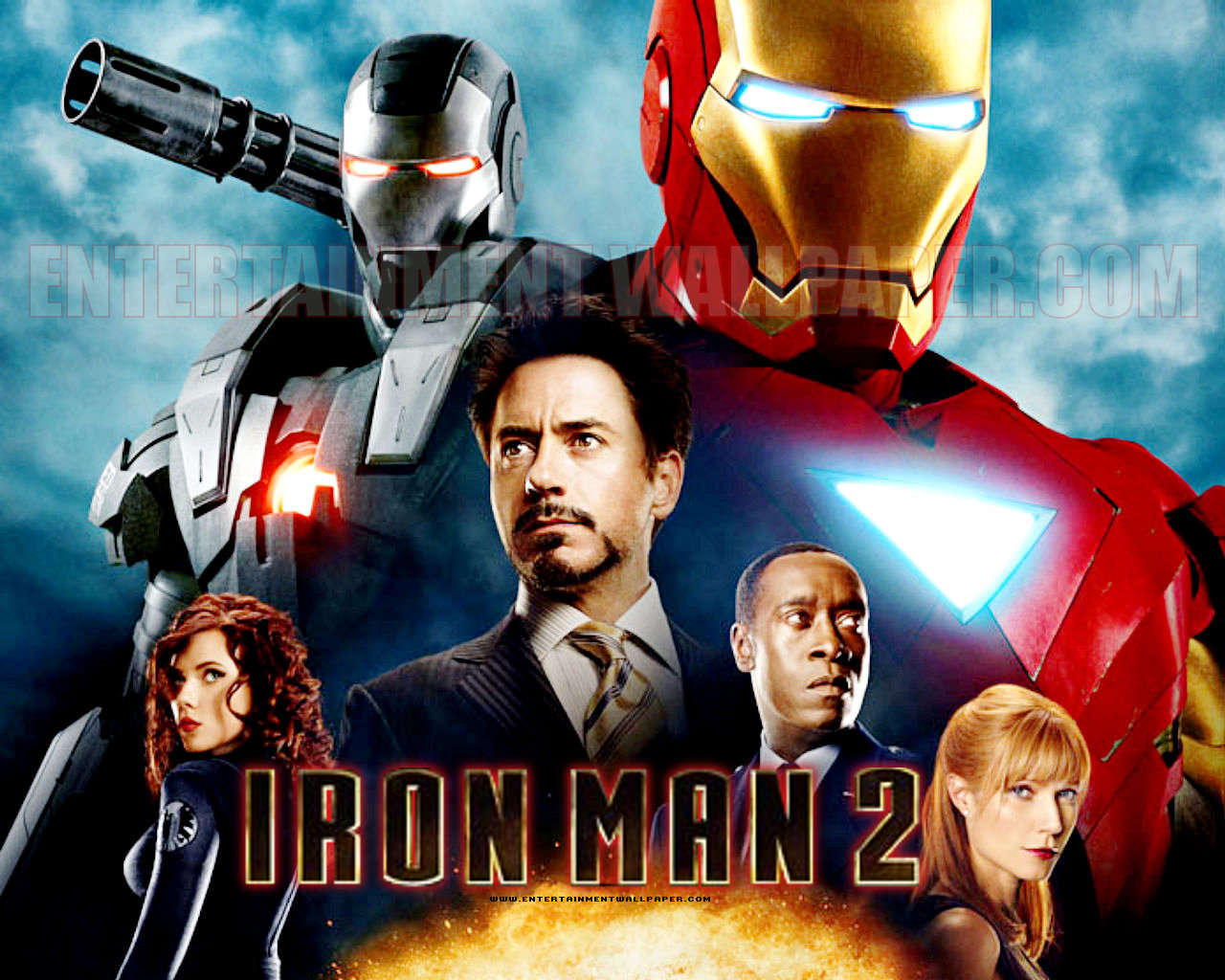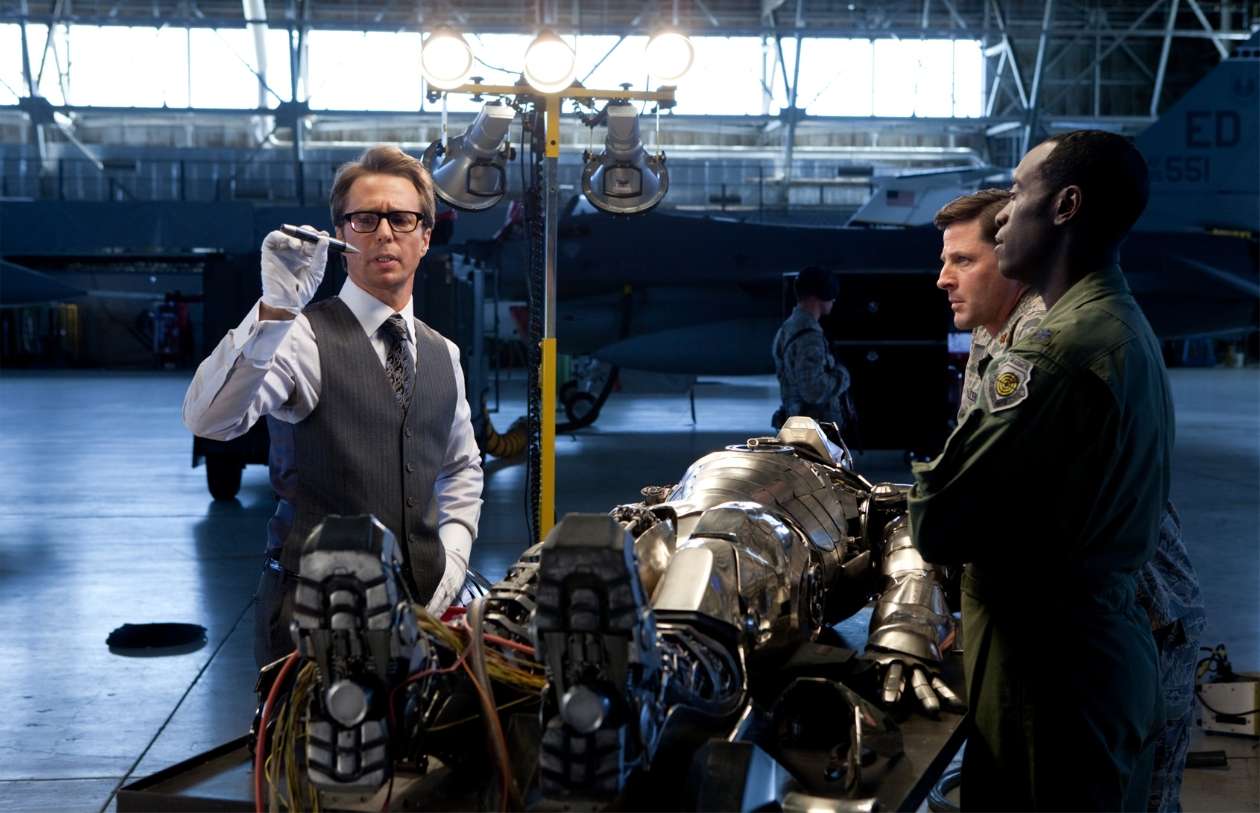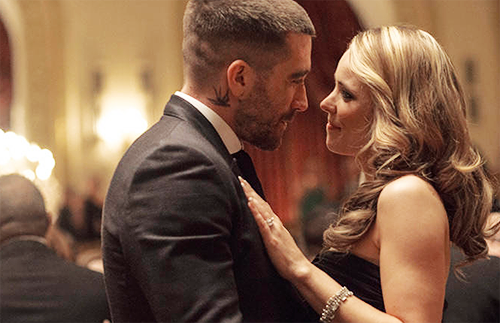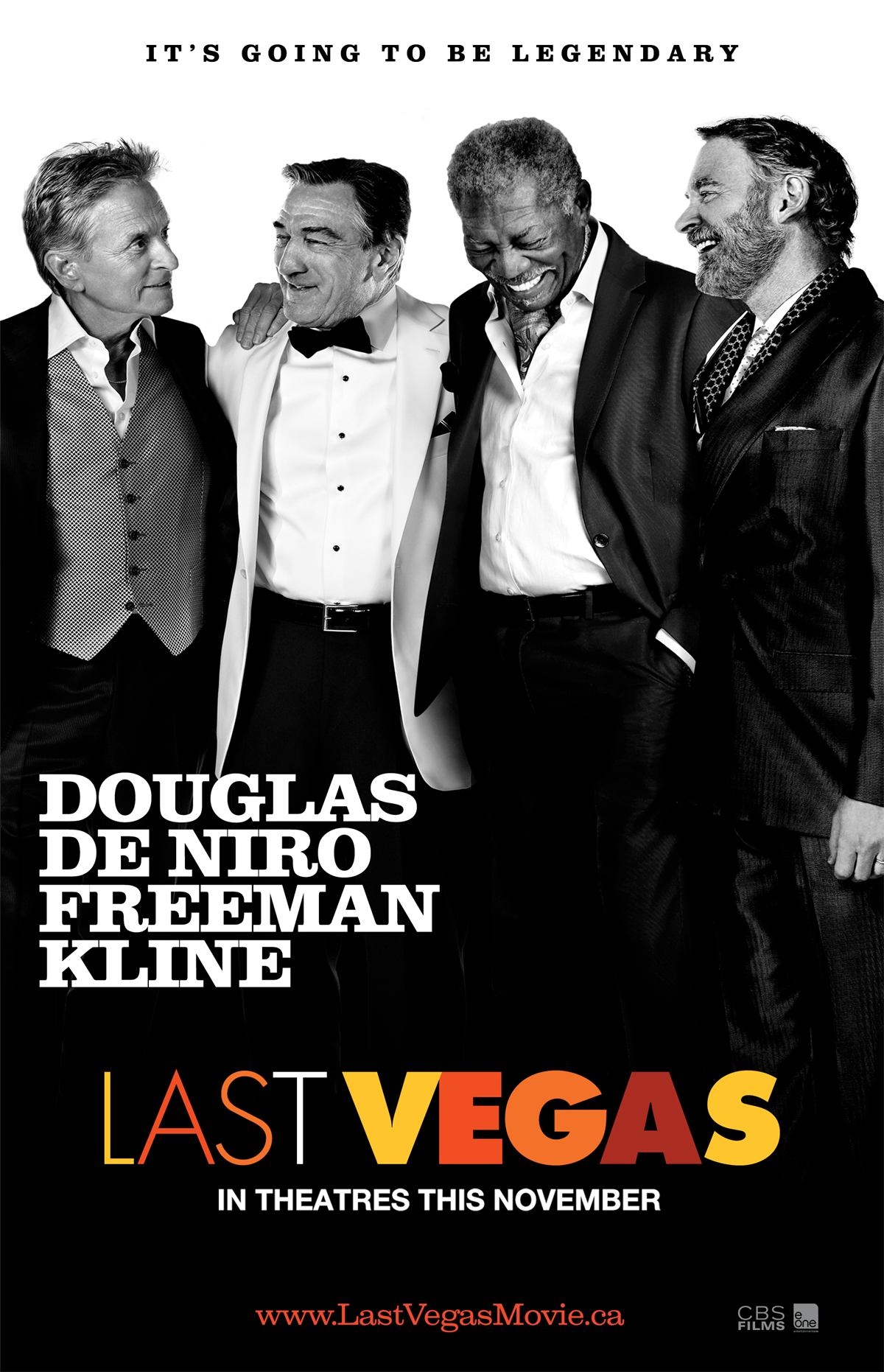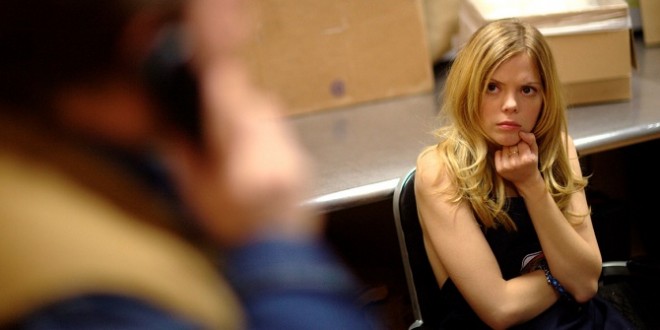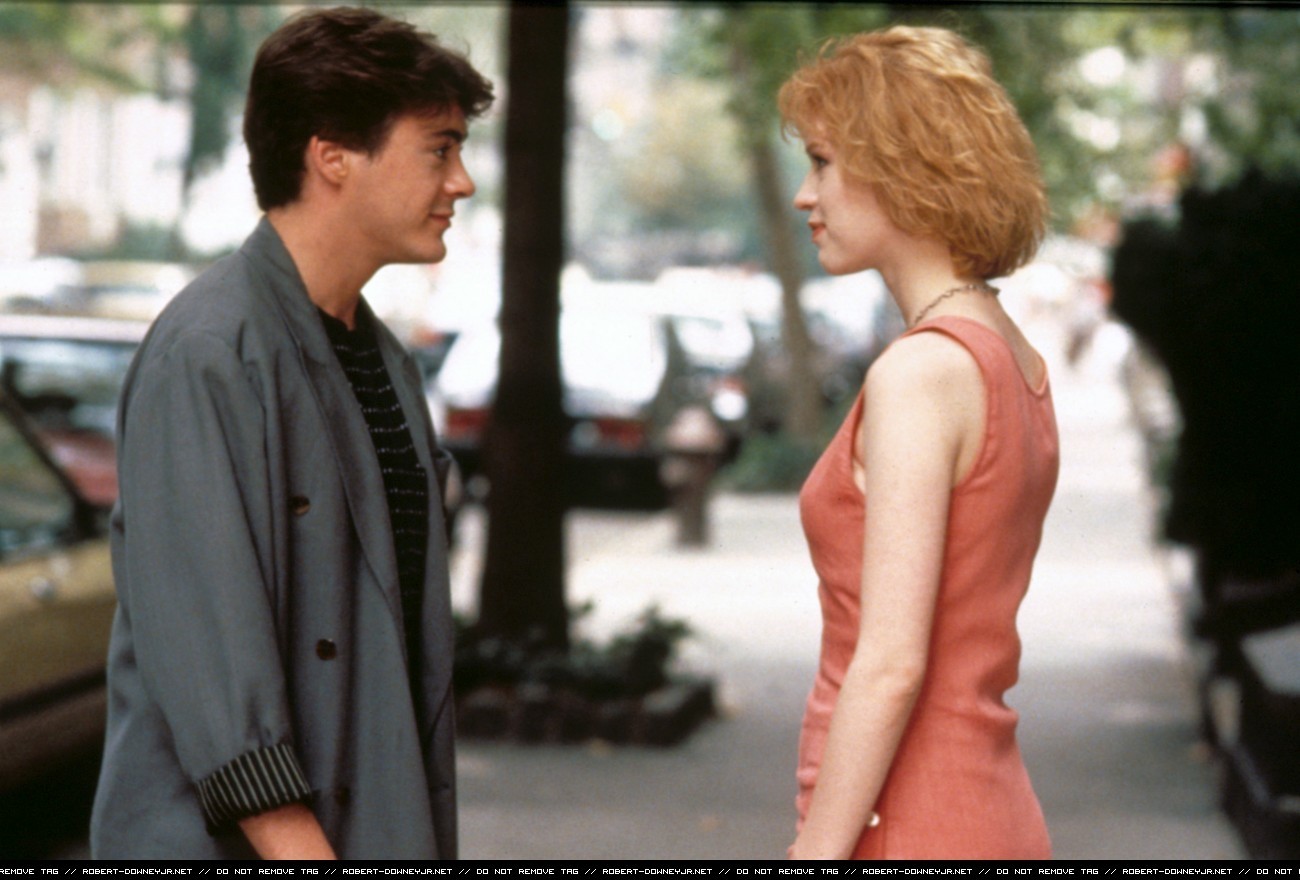The Life Aquatic with Steve Zissou
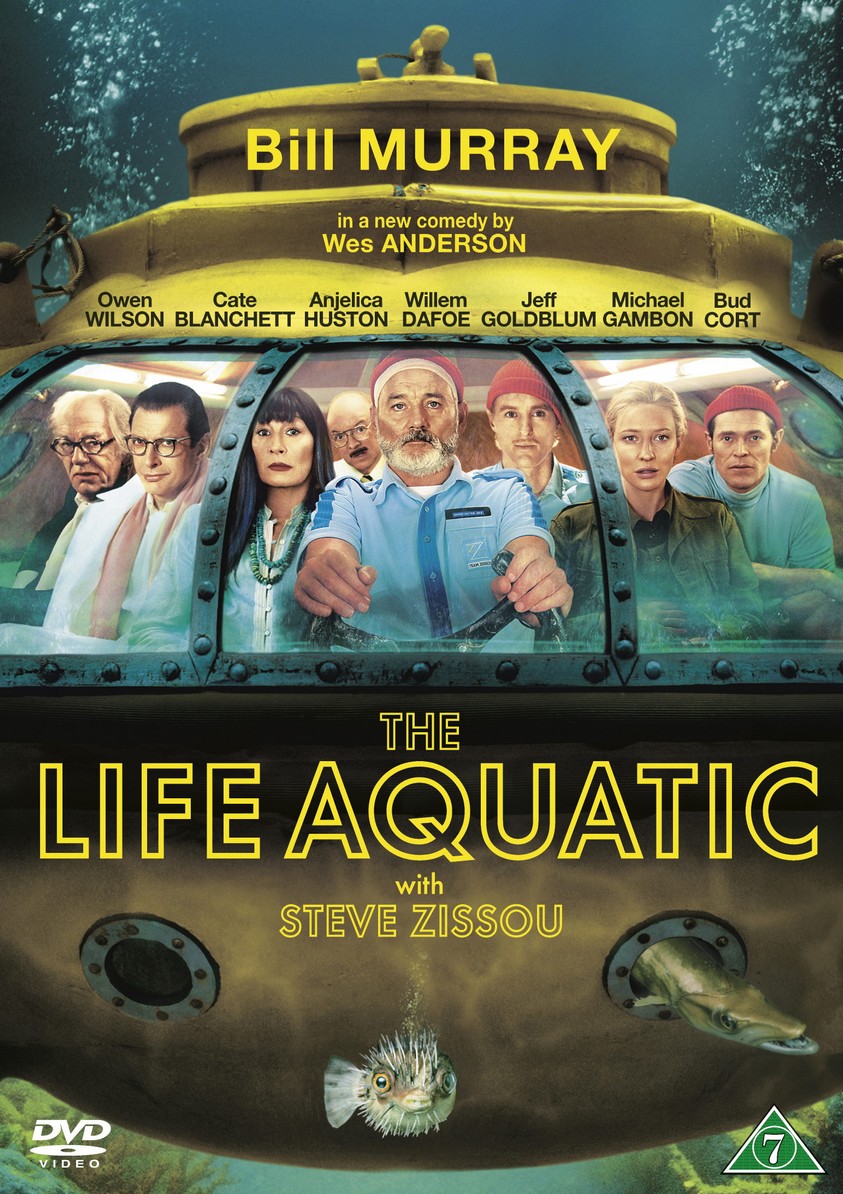
Wes Anderson, the creative vision behind The Royal Tannenbaums strikes gold again with 2004's The Life Aquatic with Steve Zissou, a fresh and strikingly original comic adventure wrapped in a riveting character study made innovative and entertaining thanks to this director's off beat style, some terrific performances, and some first rate production values.

Bill Murray turns in a dazzling performance as Steve Zissou, an egocentric oceanographer and filmmaker with his own oceanographic empire which includes an extraordinary vessel called the Belafonte and a loyal and hard-working crew, who seem to be under the watchful eye of Steve's estranged wife, Eleanor (Anjelica Huston), who also writes the checks to keep the business afloat (so to speak). As we meet this contemporary reboot of Jacques Cousteau, he has just returned from a journey where he claims that his best friend Estaban (Seymour Cassell) was eaten by a shark, who may or may not exist, but that doesn't deter Steve from making a journey to exact revenge on said shark, accompanied by his crew, a group of graduate students working as interns for college credit, a British magazine reporter (Cate Blanchett) who is five months pregnant with her married boss' baby and a grown son (Owen Wilson) he is meeting for the first time and may or may not have been aware of his existence.

This film definitely scores points in terms of originality...an unconventional story mounted on a unique canvas. Anderson has mounted a believable and emotionally charged canvas that, outside of fans of Jacques Cousteau, had to be completely foreign cinematic territory and centered it around a character who is brilliant and undisciplined, speaks without filter, and considers everyone in his orbit ends to a means, but we see a change in the man when he meets his son and the relationship that develops between Steve and his new son actually is the heart of this film and what makes it so completely watchable. The relationship is so beautifully realized that, knowing Anderson's previous work, I was afraid we were going to learn that the guy was not his son at all, but their relationship remains as we want it to until the final credits.

Wes Anderson gets the same kind of performance out of Bill Murray that he did from Gene Hackman in The Royal Tannenbaums...no matter what this guy did or how wrong he was, we just don't care because he is so damn likable and that might have something to do with this actor's history and our unconditional love for him, except Murray disappears inside this character and we believe and accept and are entertained by everything this guy does. Despite an inconsistent southern accent, Owen Wilson is charming as Steve's new son, Ned who actually has a viable chemistry with Blanchett in a role that seems thankless on the surface but Blanchett gives it substance. Also loved Willem Dafoe as an insecure member of Steve's crew and Jeff Goldblum as a fellow oceanographer who has a love/hate relationship with Steve.

This film is deliciously unpredictable with surprises throughout and Anderson has spared no expense in bringing this complex tale to the screen. The film features some beautiful cinematography, both underwater and above the surface, first rate art direction and set direction (the Belefonte is awesome), and terrific film and sound editing. But above all, this is a triumph for the director, co-screenwriter Noah Baumbach, and its one-of-a-kind star who confirms here he is a genuine movie star.

Wes Anderson, the creative vision behind The Royal Tannenbaums strikes gold again with 2004's The Life Aquatic with Steve Zissou, a fresh and strikingly original comic adventure wrapped in a riveting character study made innovative and entertaining thanks to this director's off beat style, some terrific performances, and some first rate production values.

Bill Murray turns in a dazzling performance as Steve Zissou, an egocentric oceanographer and filmmaker with his own oceanographic empire which includes an extraordinary vessel called the Belafonte and a loyal and hard-working crew, who seem to be under the watchful eye of Steve's estranged wife, Eleanor (Anjelica Huston), who also writes the checks to keep the business afloat (so to speak). As we meet this contemporary reboot of Jacques Cousteau, he has just returned from a journey where he claims that his best friend Estaban (Seymour Cassell) was eaten by a shark, who may or may not exist, but that doesn't deter Steve from making a journey to exact revenge on said shark, accompanied by his crew, a group of graduate students working as interns for college credit, a British magazine reporter (Cate Blanchett) who is five months pregnant with her married boss' baby and a grown son (Owen Wilson) he is meeting for the first time and may or may not have been aware of his existence.

This film definitely scores points in terms of originality...an unconventional story mounted on a unique canvas. Anderson has mounted a believable and emotionally charged canvas that, outside of fans of Jacques Cousteau, had to be completely foreign cinematic territory and centered it around a character who is brilliant and undisciplined, speaks without filter, and considers everyone in his orbit ends to a means, but we see a change in the man when he meets his son and the relationship that develops between Steve and his new son actually is the heart of this film and what makes it so completely watchable. The relationship is so beautifully realized that, knowing Anderson's previous work, I was afraid we were going to learn that the guy was not his son at all, but their relationship remains as we want it to until the final credits.

Wes Anderson gets the same kind of performance out of Bill Murray that he did from Gene Hackman in The Royal Tannenbaums...no matter what this guy did or how wrong he was, we just don't care because he is so damn likable and that might have something to do with this actor's history and our unconditional love for him, except Murray disappears inside this character and we believe and accept and are entertained by everything this guy does. Despite an inconsistent southern accent, Owen Wilson is charming as Steve's new son, Ned who actually has a viable chemistry with Blanchett in a role that seems thankless on the surface but Blanchett gives it substance. Also loved Willem Dafoe as an insecure member of Steve's crew and Jeff Goldblum as a fellow oceanographer who has a love/hate relationship with Steve.

This film is deliciously unpredictable with surprises throughout and Anderson has spared no expense in bringing this complex tale to the screen. The film features some beautiful cinematography, both underwater and above the surface, first rate art direction and set direction (the Belefonte is awesome), and terrific film and sound editing. But above all, this is a triumph for the director, co-screenwriter Noah Baumbach, and its one-of-a-kind star who confirms here he is a genuine movie star.
Last edited by Gideon58; 06-20-18 at 04:14 PM.

